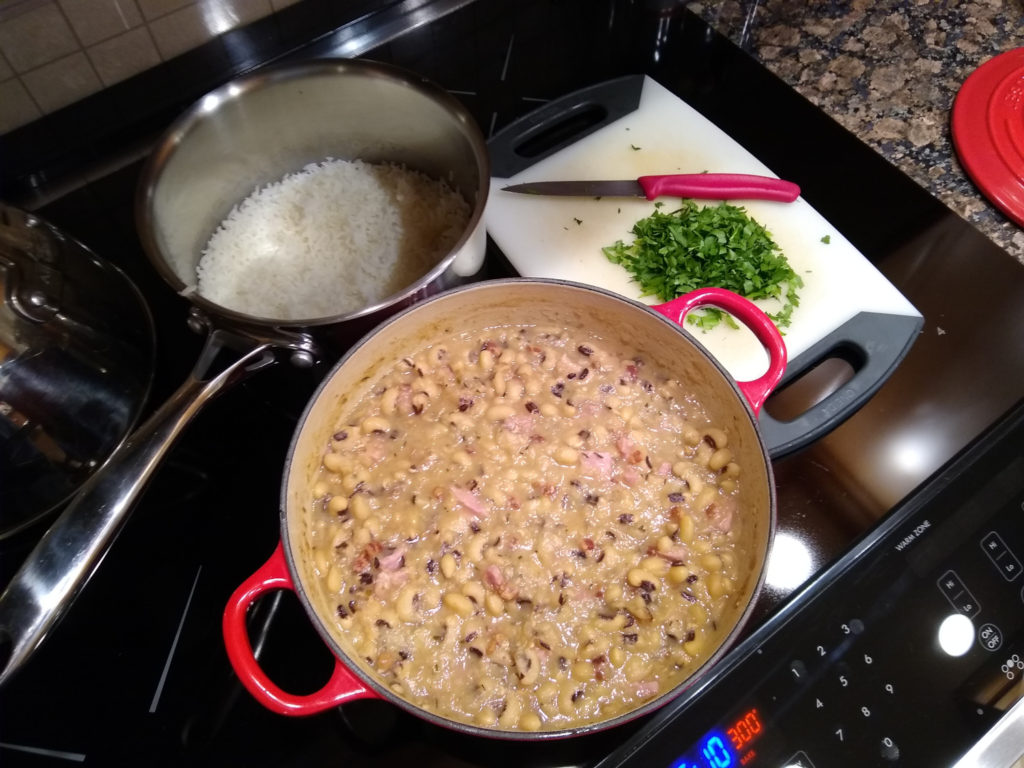In its essentials, a weight control lifestyle is about living in such a way that every food decision you make is interpreted through a single viewpoint: how will eating this affect my weight? It does take dedication to do this. That is the price of weight control – vigilance, attention, and time are required to make the weight control lifestyle attractive and interesting enough to be worth living.
It is not all price. Nobody would want to live that way. That’s where ordinary diets fail. To lose 120 pounds, like I am trying to do, a willpower-based diet of forcing yourself to eat less would never work. If by a miracle of character you pulled it off, how would you live afterwards? You might gain it all back the moment you stopped paying attention. In a way, the old you, who was gaining weight, takes back over. That’s why you need a new life and why it has to be a new you that is living it. This is for life, or the long term, anyway.

My food intake and calorie count
Breakfast – 1C steel cut oats prepared in milk (250); scant 1tsp brown sugar (20);
- 270 calories
Lunch – Costco pepperoni pizza (710);
- 710 calories
Dinner – 13.5 oz vegetable curry (350); 5oz cooked rice (160);
- 510 calories
Snacking – tea with half and half (80); pretzels, hummus and cheese (250)
- 330 calories
Total for the day: 1820 calories (limit 1800)
An attractive lifestyle is a draw
If you are on an attractive lifestyle, you will constantly trying to get it to work, and to stay on it. It doesn’t directly take willpower to do that, because it is what you want. Part of the attraction for me is that each meal is maximally rewarding, in my ideal life. I make the food myself (mostly). I have a good idea of what foods I would find rewarding. Another part of the reward is the anticipation. There is an emotional buildup when you plan for a meal, buy and cook the food, and prepare yourself to eat – that is, work up an appetite. It’s very fulfilling and rewarding to eat a food you really want, prepared to perfection, and just when you are getting hungry for it. This sequence allows you to control you intake, too, because you have to be careful not to eat too much. That reduces the enjoyment of the meal, and prevents you from getting properly hungry to enjoy the next meal.
Other people have different ways of controlling their food intake. They might eat the same thing all the time, or prepare all their food on the weekends, portion it then and eat it later. But the way I am describing is very fulfilling. Some people don’t need that. There are some thin people who don’t have a strong interest in food and don’t care what they eat, so long as they stay thin. But what I value right now is maximum enjoyment. I can get enthusiastic about that.
And isn’t that the true secret of finding a fulfilling lifestyle? Some people are fulfilled by keeping fit, or at least thin. Others are fulfilled by enjoying food. I have found that you can have both fulfillment/food enjoyment and weight control, but that weight control has to be first in your mind and in your life. It’s not possible to do it the other way around.
Where do you find your enthusiasm? If you are significantly overweight (50+ pounds) and gaining weight, you are probably not as enthused by getting thin as you might hope. It’s time to ask yourself: what do you get out of eating? I was getting pleasure and comfort from eating, which turned out to be shallow and non worthwhile goals once I thought about them in those terms. But I get very enthusiastic and excited about preparing food and eating foods I find enjoyable. My goal of eating changed. The goal before was being full and enjoying eating (quantity). Now I pursue maximum (quality) enjoyment and fulfillment, which is better and more responsible. It allows me to control my weight, too.
What is your goal of eating? A thin person’s goal is to stay thin. I appreciate that goal, but I don’t find it very meaningful by itself.
-The Doctor